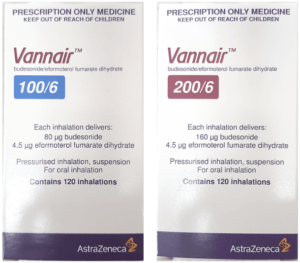Asthma is a chronic condition in which the airway becomes swollen or inflamed, making it extremely hard to breathe or even eat or drink. Asthma patients can have any elements act as a trigger. The triggers can vary from outdoor elements to edible things. Sometimes, asthma patients can have an allergic reaction to something they have eaten and it acts as a trigger. Such triggers can make the airway inflamed making it hard to breathe and swallow. Breathing problems, dry cough, panting, palpitations, and sweating are some of the symptoms of an asthma attack. Keep a lookout for these symptoms in case you are at risk.
Asthma can be greatly managed with treatment and medications. You can look for lower Symbicort cost in case it is prescribed by a doctor. Along with medications, you can make some lifestyle and dietary changes to better manage asthma. Let’s have a look at some of the diet tips you can include in your daily food intake.
- Take Enough Vitamin B6
Vitamin B6 has been proved to be beneficial for asthma patients. It can be included in a person’s diet in the form of foods rich in vitamin B6 such as bananas, beans and legumes. Vitamin B6 has been shown to reduce the frequency of asthma attacks. It helps in relaxing the bronchial muscles which further relaxes the inflammation of the airway.
- Include Foods with Vitamin C & E
Another good diet tip is to include foods rich in vitamin C and E. Vitamin C has strong antioxidant properties which are highly effective at extracting free radicals. Free radicals are harmful molecules that can obstruct airways. Vitamin C helps to reduce free radicals and clears out the airway. Vitamin E is equally important for the body as it helps extract asthma symptoms such as coughing, wheezing and breathing difficulties. Food sources rich in vitamin C & E are citrus fruits such as oranges, grapefruits, tangerine and vegetables such as onions.
- Eat Foods That Contain Quercetin
Quercetin is a strong antioxidant with anti-histamine properties that can help relieve asthma symptoms. Food sources with quercetin include red and yellow onions, apples, broccoli, capers, cherries, red grapes etc.
- Consume Herbs with Rosmarinic Acid
Rosmarinic acid has many anti-inflammatory properties which can greatly reduce asthma symptoms. According to Indian alternative medicine Ayurveda, Rosmarinic acid has been in use for asthma symptoms. It helps keep the air passages open to promote easy breathing. Herbs rich in rosmarinic acid are rosemary, peppermint, marjoram, oregano, thyme and lemon balm.
- Avoid Dairy Products and Eggs
Food allergies are a great trigger for asthma attacks. Take into notice which foods cause allergies and avoid such foods. Dairy products and especially eggs have been known to cause adverse asthma attacks and flare-ups. Avoid dairy products and look for low-fat alternatives.
- Eat Foods High in Carotenoids
Eating foods rich in carotenoids prevent the contraction of airway muscles. Food sources rich in carotenoids include yellow/orange vegetables as well as green ones such as spinach, sweet potatoes, carrots, mango, melon and apricots.

